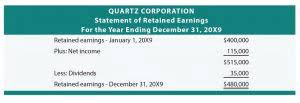
Disclosures related to accounting errors typically include a description of the error, the periods affected, the amounts involved, and the impact on the financial statements. This information is often presented in the notes to the financial statements, which accompany the primary financial documents such as the balance sheet, income statement, and cash flow statement. Disclosures also typically include other details about the cause of the error, how it was discovered and other direct and indirect impacts of the error. Additionally, an entity will need to consider the impact of such errors on its internal controls over financial reporting – refer to Section 5 below for further discussion. CommunicationAs the prior period financial statements are not determined to be materially misstated, the entity is not required to notify users that they can no longer rely on the prior period financial statements.
BDO Bulletin: SEC Staff Releases More Interpretive Guidance on Cybersecurity Incident Disclosure
Financial reports need to be free of errors, misstatements, and completely reliable. Any changes or errors in previous financial statements impair the comparability of financial statements and therefore must be addressed appropriately. In the realm of accounting, the discovery of errors is a precursor to the implementation of corrective measures. It is a meticulous process that requires a keen eye for detail and a comprehensive understanding of accounting principles. Once an error is identified, the nature and impact of the discrepancy must be assessed to determine the appropriate course of action.
Distinctions between Correcting and Adjusting Entries
Even with automation and easy-to-use accounting tools, bookkeeping mistakes can happen. Journal entry errors can end up costing your small business time and money. Error of commission is an error that occurs when a bookkeeper or accountant records a debit or credit to the correct account but to the wrong subsidiary account or ledger.
The Auditor’s Role in Error Correction
This error drastically affects the balance sheet and gives an incorrect picture of the business’s financial status. Not recording data is common, whether it’s not reporting expenses or not adjusting inventory quantities. accounting errors must be corrected: Omitting data affects the balance sheet and can make a company look like it’s doing better than it actually is. A transaction that incorrectly uses an accounting principle is called an error of principle.

Omission errors occur when financial transactions are not recorded in the balance sheet. This can happen due to oversight, neglect, or a misunderstanding of the financial information’s significance. Omitting transactions affects the accuracy of the financial statements, leading to a misrepresentation of the company’s financial status. For example, failing to record a piece of purchased equipment as an asset not only understates the company’s assets but also misstates its capital expenditures and depreciation expenses. Errors can also stem from the incorrect application of accounting principles. For instance, the accrual basis of accounting recognizes income and expenses when earned or incurred, regardless of when cash is exchanged, whereas the cash basis recognizes income and expenses only when cash is received or paid.

Retailers and restauranters can obtain the right to use those assets under https://www.bookstime.com/pricing lease contracts or in service arrangements that contain embedded leases.
- This means a material change in estimates is noted in the financial statements and the change is made going forward.
- These entries should be crafted with precision, ensuring that each debit and credit reflects the necessary adjustments to rectify the error.
- However, for material errors that could influence the decision-making of users of the financial statements, a more comprehensive approach is required.
- The correcting entry journal entry will debit cash by $450 and credit accounts receivable by $450 (debits increase amounts, credits reduce them).
- When a significant error is discovered in the balance sheet, it must be disclosed and corrected promptly.
This process is essential for validating the accuracy of financial data and preventing balance sheet errors. An entity is required to disclose the impact of the change in accounting estimates on its income from continuing operations, net income (including per share amounts) of the current period. If the change in estimate is made in the ordinary course of accounting for items such as uncollectible accounts or inventory obsolescence, disclosure is not required unless the effect is material.

Technological Tools and Software
Additional disclosures are required for any indirect effects of the change in accounting principle. Financial statements of subsequent periods are not required to repeat these disclosures. Accounting errors are unintentional bookkeeping errors and are sometimes easy to identify and fix. For example, if the debits and credits don’t add up to the same amount in the trial balance, an accountant can easily see what account is inaccurate.
- If an asset is accidentally entered as an expense (a type of liability), then it is said to be classified incorrectly.
- Errors of omission in accounting occur when a bookkeeping entry has been completely omitted from the accounting records.
- The process is meticulous, requiring careful preparation and execution of journal entries, as well as potential adjustments to prior period financial statements.
- They review the notes to the financial statements to confirm that all required information about the error and its correction is disclosed comprehensively and clearly.
- Describe the ways errors can be corrected and accounted for in the financial statements.
Previous financials must be restated to be calculated as if the new principle were used. The only time that financial statements are allowed to not be restated is when every possible effort to address the change has been made and such a calculation is deemed impractical. The type of accounting errors that do not affect the trial balance are summarized in the table below.


